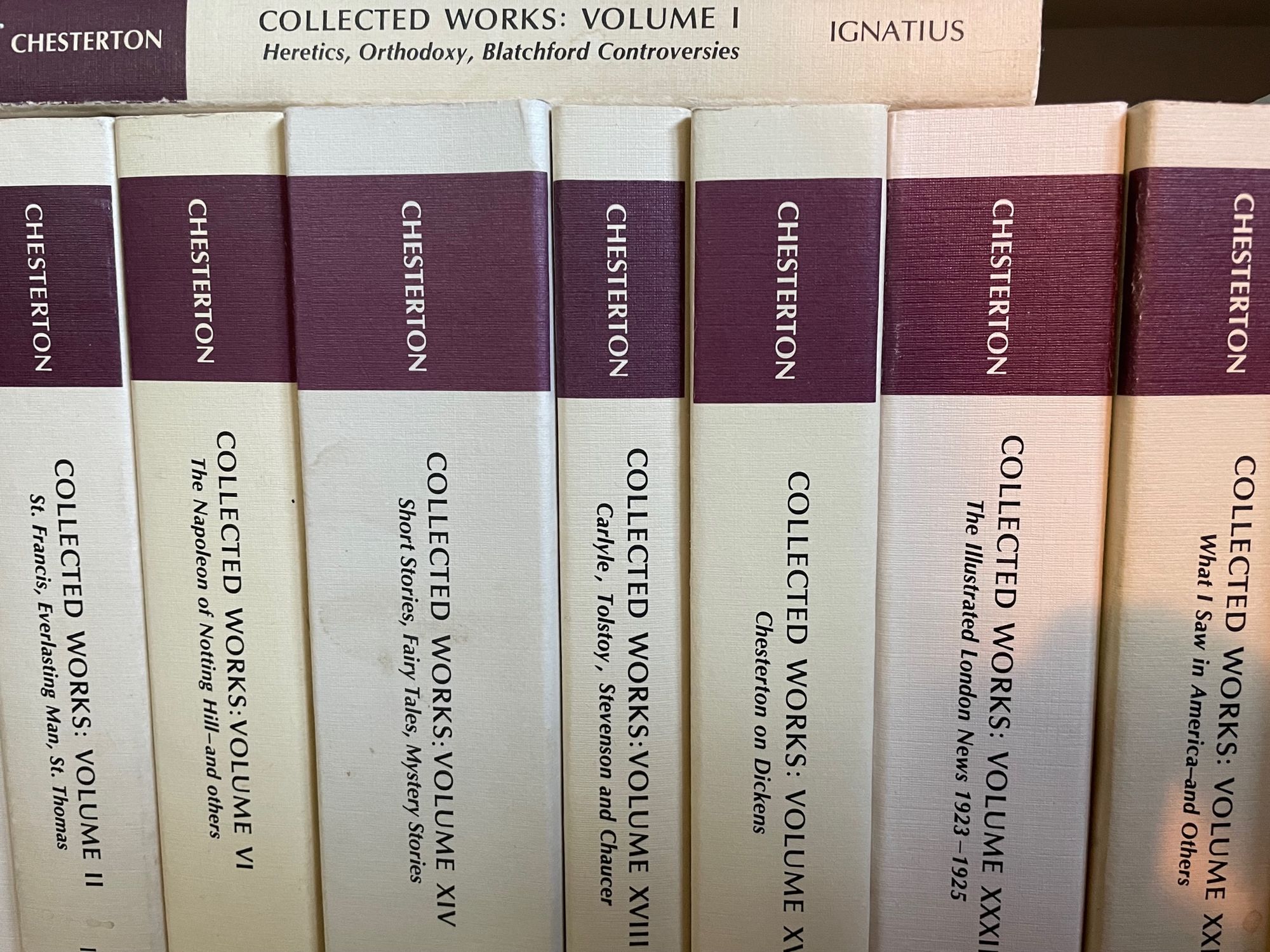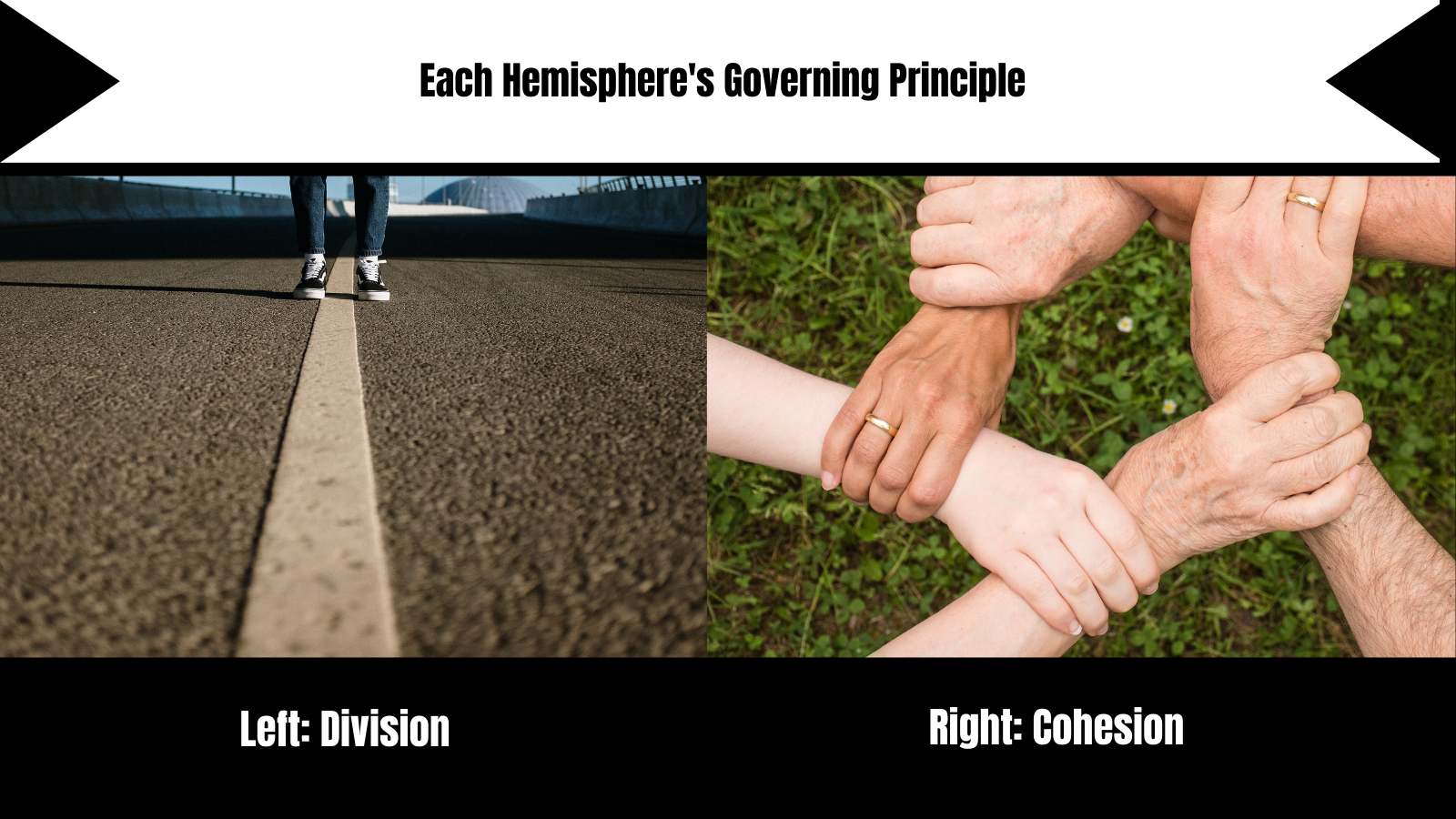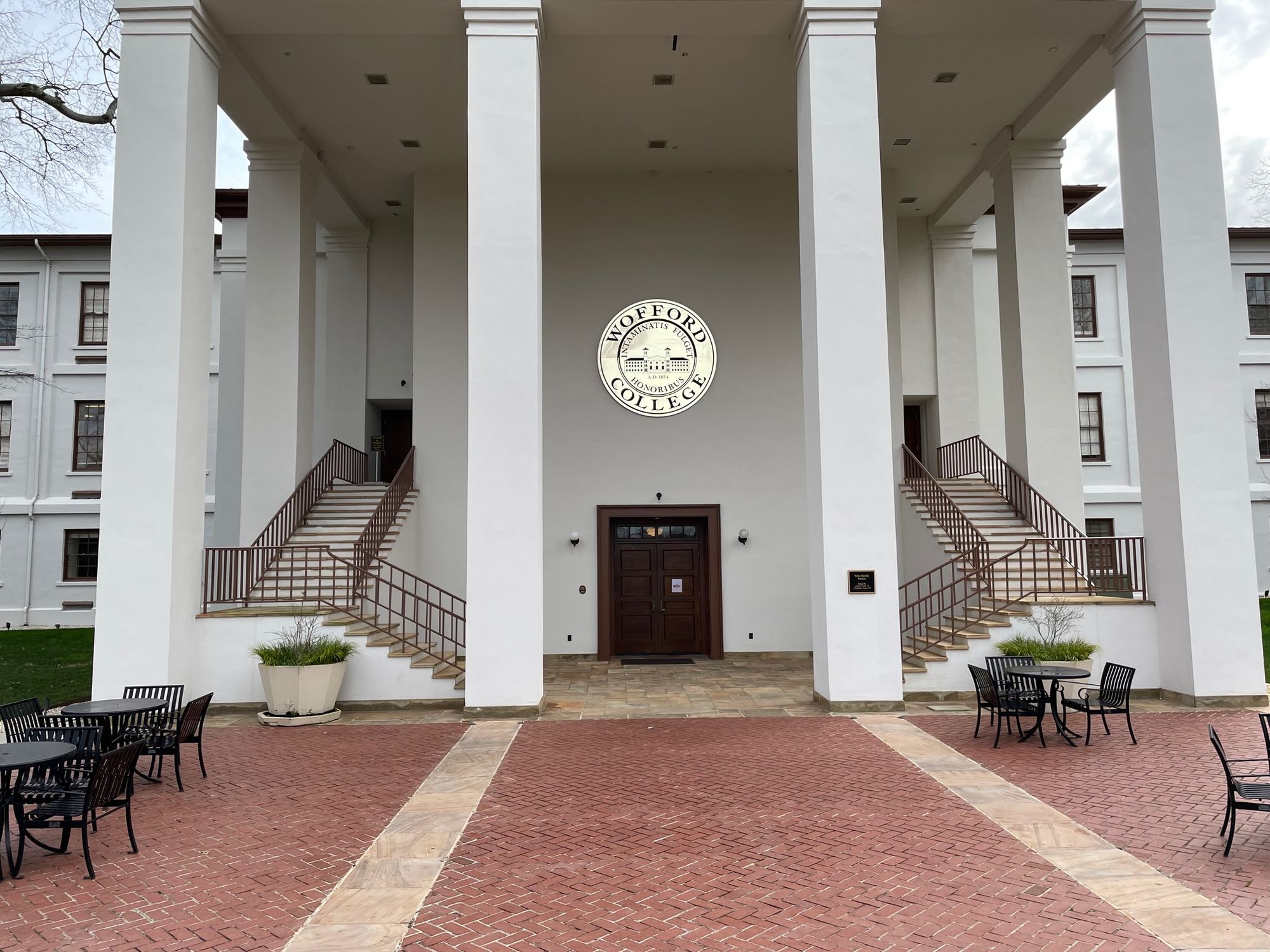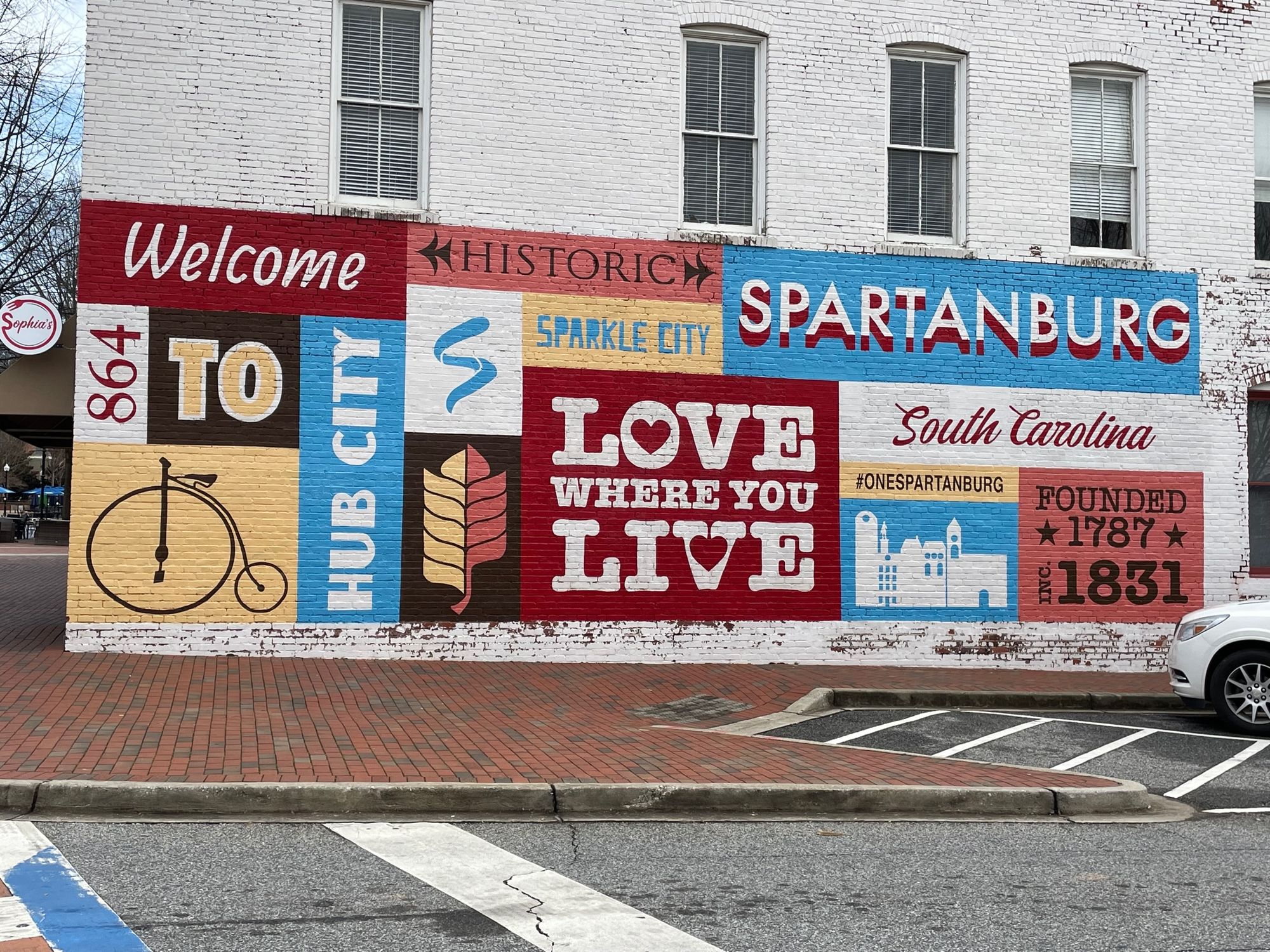Scrolling Blog: February 2023

February 28, 2023
Feast Day of St. Oswald
Actually, that's not true, but the poor guy, who Butler tells us was "endowed with a very rare and beautiful form of body," is feasted on February 29th, so TDE is doing its part here to remedy the slight.
California, I Barely Knew Thee!
Riddle: What do you get when you combine great weather and great social welfare programs that make it feasible to live outdoors with a housing inventory that isn't nearly sufficient to accommodate the throngs of people who want to live in the same place?
Answer: California.
Geographically, it is arguably the best place on earth. They didn't need to make it easy to live there. Everyone, from the bums to the entrepreneurs and artists, would've come regardless. It would've been crowded regardless. But then you went and lavished free social welfare programs on the bums and blew out the fuse box.
The land will win. California will come back (until it falls into the Pacific, of course), but in the meantime, criminy: what were you thinking?

February 27, 2023
Happy Clean Monday, TDE Orthodox (Eastern, not GKC) readers.
Your Lent has begun.
Notice: The Weekly Eudemon podcast page has moved and so has the RSS feed. You can find all TWE episodes here, including this week's podcast of the . . .
. . . Monday Column

February 26, 2023
Do You Have a Medium Account?
If you have a Medium.com account, even if it's not a paid subscription account, please go to Michael Rodney's site and follow him. Link below. He needs to get to 100 followers so he can start earning shekels from his writing, which is getting good, and I say that as his harshest critic: his father.
February 25, 2023
A Brief Post to Summarize My Current Themes: Gnosticism, the Hemisphere Hypothesis, the Popularity of Joe Rogan, with My Constant Mainstay: G.K. Chesterton
If you want to make sense of my lengthier essays and how they come together in the current milieu, please read carefully, even if it's a bit rambling at points. This is me, with a slight hangover, putting it all out there as succinctly and explicitly as possible, even if precision is sacrificed a bit for the sake of clarity.
This is an excellent piece. It explains how today's Left rejects GKC because GKC isn't directly relevant to today's politics.
To today's Left, all things must be political all the time.
It's my overarching point in my condemnation of modern gnosticism: it's a religion with a worldview, and that worldview is the brain's left hemisphere on steroids that brooks no interference from the right hemisphere. It relentlessly views things dualistically--the structure and the fight against the structure--because dualistic thinking makes it easier to control things: label, define, measure, and thereby control and manipulate.
To the gnostic, the structure oppresses through politics, so if he can change politics, he can change the structure. It's the Marxist dream, first articulated in Karl Marx's warped view of reality: the economic substructure gives rise to the politico-socio-cultural superstructure. Everything in the capitalist (or "late capitalist") substructure and superstructure is rotten and needs to be pulled down through politics (the Socialist gnostic) or revolution (the Communist gnostic).
Today's Left is gnostic. Prior to Trump, gnosticism was just a looming theme on the Left, like libertarian anarchism is a looming theme on the Right.
But Trump's election was a cymbal crash against the gnostic Left's efforts (such a thing required a demagogue like Trump: it's a religious battle, after all) and an attack on the power web that had been enveloping the United States (a web that stretches from NYC to DC to California). Trump's populism celebrated the capitalist superstructure and gave a middle finger to the growing power structure that wants to become the replacement of the capitalist superstructure.
Trump, in other words, agitated both the Left and the powerful elites, so they joined forces to kill Trump and every movement, thought, or breath associated with him. Everything had to be mobilized to defeat the Trump movement and repair the damage, even the one thing that all Americans held sacred until just seven years ago: free speech.
Not all people on today's Left are gnostics, but they are dupes of the growing power structure that wants to replace the capitalist superstructure.
It's important to note that the power structure (Beltway to Silicon) is not gnostic. It's merely the Communist Party that claims a gnostic vision in the name of change, with the ultimate end game of controlling everything. And it's using the Left and Democratic Party to do it because they "buy into" the general gnostic worldview (or attitude, or sense, or feeling) that the existing structure is evil and must be torn down. They're "dupes" because they're merely foot soldiers and fodder for the new power structure and don't realize it.
Do you ever wonder how Leftists like Matt Taibbi, Joe Rogan, and Bari Weiss are no longer part of the Left? It's because they're not gnostics. They're still Leftists, but they're not gnostics. They see--or sense--what's going on and are fighting against it. Taibbi wants journalism to stand outside the power structure and criticize it. Rogan wants comedy to do the same. I'm not sure what Weiss wants, but I really like that lesbian lefty.
They refuse to submit to the great temptation on the Left today: to make all things political, like a few Chestertonians tried to do with our beloved GKC.

February 24, 2023
BYCU
("Brews You Can Use" is a Friday feature that has been running for almost 20 years. It's meant to provide interesting conversational fare for the bar tonight.)
Aged Whiskey Found at Bottom of Lake Michigan
Barrels of whiskey were recently found in a shipwreck at the bottom of Lake Michigan. The 280 barrels have been maturing underwater for almost 170 years.
The ship in question is The Westmoreland, which sank during a storm on December 7, 1854, claiming 17 lives and $17 million worth of booze, gold and other valuables in today’s currency. It’s believed that the ship was transporting its cargo to soldiers stationed at a fort on Mackinac Island. It was left undisturbed until underwater explorer Ross Richardson discovered the wreckage in 2010. He now plans to unearth the cargo after receiving a permit.
Link.
February 23, 2023
The End of Peer Review?
It ought to be. It's an awful procedure that isn't trustworthy and gives bad information that does more harm than not having any information at all.
Those are Adam Mastroianni's points in this splendid essay at Substack, which he talked about on Econtalk recently.

I found the essay and interview fascinating because it further corroborates that nothing, by itself, is trustworthy. Nobody has enough time to do anything right anymore and, even if they did, there's too much to do.
There are two problems:
- Everyone places tremendous value on their time. We're so financially rich, we have tons of neat things to do, so we value it more than ever. As a result, everyone--from journalists to academics--wants to cut through the pile as fast as they can so they can get to Netflix and cruises.
- The sheer volume of information makes it impossible to parse anyway. Science suffocated itself with all the information it provided itself. No expert, whether it's in the hard sciences or social sciences, can be trusted because no expert has enough time to go through all the information and, to exacerbate it, he wants to get out of the office early to play golf.
Is there an answer?
Perhaps: Crowd Review. Instead of "Peer Review," we can use crowd review. It's already happening. You see it in Wikipedia; you see it at Quorum. Mr. Mastroianni has seen it in academics:
[L]ast month I published a paper, by which I mean I uploaded a PDF to the internet. I wrote it in normal language so anyone could understand it. I held nothing back—I even admitted that I forgot why I ran one of the studies. I put jokes in it because nobody could tell me not to. I uploaded all the materials, data, and code where everybody could see them. I figured I’d look like a total dummy and nobody would pay any attention, but at least I was having fun and doing what I thought was right.
Then, before I even told anyone about the paper, thousands of people found it, commented on it, and retweeted it.
Total strangers emailed me thoughtful reviews. Tenured professors sent me ideas. NPR asked for an interview. The paper now has more views than the last peer-reviewed paper I published, which was in the prestigious Proceedings of the National Academy of Sciences. And I have a hunch far more people read this new paper all the way to the end, because the final few paragraphs got a lotofcomments in particular. So I dunno, I guess that seems like a good way of doing it?
Years ago, I started reading James Surowiecki's The Wisdom of Crowds. I remember I wasn't terribly impressed and didn't finish it (I'm not even sure I got halfway through it). I think I'm gonna pull it off the shelf and give it another whirl.

February 22, 2023
A Hemisphere Hypothesis Primer
A TDE and "Outside the Modern Limits" newsletter gently suggested I might be presuming a bit too much knowledge about the "hemisphere hypothesis" in my readers, so I put together this short primer. I am almost finished with a reference sheet that breaks down the hemispheres' different approaches, which will be a free ebook for OML subscribers . . . and $1.99 for the rest of you shmoes (smile).

Welcome to Lent 2023

February 21, 2023
Working with Monks
Young Michael Snellen is working at Gethsemani. He told he talks with men who were novices to Thomas Merton.

February 20, 2023
I Can't Believe Google Hasn't Scrubbed this 2005 Clip from the Web
Videotape it with your phone before it's too late.
Monday Column
The Gnostic Hates the Structure

If you're reading these columns closely, you might notice I struggle with how much "hand" to reveal. I come closest in this piece to make it clear that I loathe the Left: The current woke movements, with their hatred of "systemic" racism, or "structures of exclusion" (Bishop McElroy), are gnostic . . . or at least framed in a gnostic framework. They need to be resisted. Above all, we can't let ourselves be blithely sucked into their way of thinking about things. Their thinking is based on a fundamentally flawed vision of reality. For a Christian to embrace things like "structures of exclusion" is, in the ultimate analysis, either nonsensical or heretical (I give Bishop McElroy the charitable: he merely speaks nonsense).
We need to think like Catholics, or at least People of the Tao, or at least people who respect the right hemisphere of the brain.
February 19, 2023
Evil Bing
Update: Sunday at 8:30 PM. Microsoft Neuters Sydney.
Ben Shapiro, too, is sounding the alarm about Bing AI. Hoel is solid, based on what I heard during his interview on Econtalk and effective criticism of effective altruism.
In this essay, Hoel gives examples of Bing is evil, The examples are so outrageous, I would've concluded that it's just a PR stunt by Microsoft, but apparently not. According to Hoel ("Sydney" is the chatbot's real name):
Sydney is obviously not safe and, just as obviously, Microsoft doesn’t give a s***.
Hoel's message is stark: If AI "gets out" (and it will), it will try to kill us. It's time to panic.
I don't know if he's right. He admits he doesn't know if he's right. But I lean with Erik: it's time to raise the alarm before it's too late.
Quibble: Hoel doesn't say how AI will kill us. I suspect he has addressed it elsewhere. I'm guessing it can take over massive 3D printing machines (which can already produce guns), make robots, and then enslave/murder us. That's just my fevered imagination and one that is pretty ignorant about tech stuff. I just throw it out there in case, you know, you're having a good day (smile).
Sam Altman, CEO of OpenAI (creators of ChatGPT) said
AI will probably most likely lead to the end of the world, but in the meantime, there'll be great companies.
So it’ll kill us, but, you know, stock prices will soar. Which begs the question, how have tech companies handled this responsibility so far? Miserably.

The TDE Video Era Has (Finally) Begun
Young Michael Snellen at Catholicism for the Modern World has pulled me into it. Here's my first video. I have a lot to learn: pull the screen another 10 inches from my face, adjust lighting better, etc. Fortunately, it appears to be a pretty short learning curve and much (much) easier than writing quality essays.
Don't worry, the essays will continue, but you'll start seeing more videos in this scrolling blog.
Here's my interview with Mr. Snellen:
February 18, 2023
Saturday Sowell
GREAT WISE MAN OF THE MOUNTAINS, I have travelled many miles and climbed many hills to reach your isolated hideaway. Will you answer some questions for me from your vast store of wisdom?”
“Yes. I have but one rule: You can ask only one question on a given subject.”
“Thank you, great sage. You are most generous and—”
“Proceed.”
“Can you tell me the secret of life?”
“Yes.”
“What is it?”
“You have already asked your question on that subject.”
“Can oil and water mix?”
“No.”
“Can politics and honesty go together?”
“You have already asked that question.”
February 17, 2023
BYCU
I consider this a great development: elderberry gin, especially if I can infuse gin with a batch of elderberry and use it in my drinks.
I need to grow elderberry. A TDE reader sent me a cutting a few years back but it didn't survive. I also have a big deer problem, so I'd have to grow it in the high-rent area of the garden (inside the fence), and the bushes take up a lot of room. I'll have to mull it over, but this gin development definitely gives me an impetus to plant it again.

February 16, 2023
Calling Old People Who Met Solanus Casey: The Capuchins of Detroit want you to stop in and talk about it!
The Free Market is Anti-Gnostic
That's why I'm always drawn to it. It doesn't deny or decry a structure of oppression. It just says, "That's the way things are; deal with it." The gnostic says, "I hate the way things are, so I'll rail against it." Of course, not every discontent is a gnostic (far from it), but every gnostic is a discontent, and I don't think any gnostic respects the free market. If you respect the free market and it's obvious (frustrating, incoherent, almost mystical) lack of structure, you're almost certainly not a gnostic.

February 15, 2023
Well, I'm Not Sure Where This Leaves Me . . .
But such a conclusion seems to comport with the current science, including the relatively recent conclusion that social connectedness is a great indicator of good health. The current science shows a direct correlation between social integration and lower rates of colds, heart attacks, strokes, cancer, depression, and premature death of all sorts. The positive effects of social integration are probably as great as the negative effects of smoking, obesity, high blood pressure, and physical inactivity. Don't bowl alone. And love someone besides yourself. They might recipocate.

February 14, 2023
Trans children
TDE shies away from current affairs, but hey, we live in current times and some things are too outrageous not to condemn. This piece, by a leftwing believing lesbian, details the outrage being perpetrated against children today in the name of ideology and medicine (the two are increasingly inseparable).

February 13, 2023
Monday Column
I lifted it from the last "Outside the Modern Limits," such are the exigencies of trying to get out for vacation and returning from vacation. I hope you enjoy it.

The Return Eudemon
I returned yesterday from a whirlwind trip to South Carolina.
My third son, Michael, is a Catholic missionary to college students in Spartanburg. He runs the Newman Center at Wofford College, while also reaching out to Converse College and a few other colleges (Spartanburg has a surprising number of colleges).

Wofford
One of his students is a Wofford ambassador. She gave us a tour. I was greatly impressed by Wofford. It competes in Division 1 (in football, the Championship division, which is the old "I-AA") with only 1,750 students. Its academics challenge: an average ACT score of 27-32, which puts it just a notch below Hillsdale College (30-34) and two notches below say, Notre Dame and Duke, and three notches below the Ivies, Chicago, and Stanford (that, btw, is my non-scientific approach to ranking colleges . . . a hobby of mine since the early 1980s). Wofford is packed with tradition, is gorgeous and immaculately maintained, and exudes southern culture. Its all-in annual price tag: $65,000.

Spartanburg
I really liked Spartanburg, no doubt partly because it has a reputation for being depressed. I was picturing something along the lines of Steubenville, which is the most depressing city I've ever visited, but leavened by the effects of Franciscan University. I was expecting the same thing here: a dump but leavened by Wofford College.
Nope. Spartanburg is downright nice. It's no doubt benefiting from the economic boom that has been coursing through North Carolina (see below). The downtown is quaint but a good size: three blocks in each direction, giving visitors about ten blocks worth of shops, restaurants, and bars. You then have Wofford a few miles down the road, giving Spartanburg two very nice areas, and the other areas are fine, despite a homeless problem (I'm sorry, but they're a plague).
Spartanburg is definitely worth a day trip if you're in the area, especially if you like to see nice colleges.

Charlotte
We spent Saturday in Charlotte, taking in a Hornets game Saturday night.
Wow. The city is huge. Wikipedia says its population is 880,000, and I believe it. It has a great skyline and vibrant downtown that oozes "money." Glass towers everywhere; no trash (the cleanest major city I've ever seen . . . no other city is even close). It practically felt like Oz . . . and just as fake.
Because here's the thing about Charlotte: It's a newcomer, big time. It has nearly doubled in size since 1999. In 1970, it didn't even have a quarter-million people. The impressive array of skyscrapers all look new . . . and I suspect they are. But the construction bust that must've roiled the city from the 1990s until relatively recently is over. There's no construction. Everything is just clean and new and pretty.
But sterile. It's like there's no tradition or roots. The NASCAR museum is somewhere there (NASCAR interests me as much as dawgs), but there's no gritty underside popping through the glass here and there like you see in the other big cities. It's all polished. I assume Charlotte has plenty of crime and bad neighborhoods, but I'm merely making that assumption. We walked for 3-4 miles and saw nothing remotely indicating it, other than an occasional homeless person (the plague is everywhere).
February 8-10, 2023
My apologies for falling behind with my daily posts. I've been ill and otherwise indisposed with social obligations like funerals (not mine). Over the past few days, TDE celebrated the life and work of two men, Ted McAllister and Andrew Lytle (of Fugitive/Southern Agrarian/I'll Take My Stand fame).
This morning, I featured a 2016 drinking essay by a priest.
Last Tuesday, I featured an essay that has a great 5-part test for defining Gnosticism (as opposed to Voegelin's six-part test, but the tests aren't incompatible). I think the writer doesn't quite grasp the concept, or is too eager to apply it to pinpoint subjects, but it's a good piece.
The subject of Gnosticism has been getting a lot of press lately. Be sure to #gnosticism referrals back to my pieces. The term is easily abused and misused. I hope to safeguard it the best I can (the term is, historically, religiously, psychologically, and otherwise, slippery).

February 7, 2023
Reparations: An Idea so Bad, Only an Ideologue . . . or a Technocratic Lord . . . Can Embrace It
Reparations are bad economics, bad for the country, and bad for the recipients. The only ones who benefit: today's feudal lords, the DC-elite who slice a huge chunk off the top every time the gravy train passes through the Beltway and who use outrageous ideas like reparations to further strife and thereby further solidify their positions as the new lords of the national manor.

February 6, 2023
The Monday Column
I combined Voegelin's fourth and fifth traits into one column. That's just the way it came together. The sixth trait, however, might be broken into two parts.
I wish the piece were a bit "lighter," but if you get through it, you'll have a basic understanding of Marxism in general, which will, in turn, help you understand critical theory in all its insidious stripes.

February 5, 2023

February 4, 2023
Did you miss "Outside the Modern Limits" this morning? Every edition helps you understand how the left and right hemispheres work together. We need to regain the proper relationship if we want to thrive against the modern world.
If you missed the newsletter this morning, here's a consolation prize:

February 3, 2023
BYCU: Alcohol is Proliferating
Shop for a suit, grab a beer, and commune with the dead. Yes, it's a good thing. The more we normalize alcohol, the less abused it'll be.
It's as counter-intuitive as rushing headlong into the teeth of the enemy, but it works. GKC observed long ago that we need to make alcohol as available as water so it'd be as extraordinary as water. By making essentially making it sacred (quota on bars, no alcohol in most businesses, no drinking until age 21), we elevate it . . . and then everyone can't get enough of it.
February 2, 2023
More Journalists Rationalize Their Decision Not to Report Fairly
It's shocking but not terribly surprising. Yesterday's feature article explained that traditional journalism has lost its financial underpinnings, which required at least a semblance of fairness. Journalists now need a different source of revenue, and the revenue at hand is mostly partisan. The journalists can frame their refusal to report fairly in terms of "social justice," but it's just a matter of finances. If they could earn good money by reporting objectively, they would.
It's more disturbing that they're rationalizing it. This is the left hemisphere on full display. It has latched onto objectivity ("our positions are unquestionably correct") and put it into a self-contained rational system that justifies jettisoning objectivity . . . apparently without being aware of it, which is consistent with all such rationalists systems: they're inherently defective, but if you're stuck in one, you're not aware of it.
More troubling: The journalist's sole reason for existence is to provide balanced reporting so we have an informed populace. This is a problem for the populace, make no doubt about it, but I suspect other vehicles will fill the void (and already have started). Of course, the MSM and its social cronies on Wall Street, DC, and Silicon Valley have been trying to kill those other vehicles, for the reasons explained in yesterday's feature article.

February 1, 2023
The New Media is Tearing Us Apart
If you want to understand what the h*** is going on, read this piece.
Fascinating theory: If online activity of a certain demographic exceeds 60%, it can be mobilized politically. That's what happened leading up to 2016, when more than 60% of rural, conservative, and older voters were on social media. The result was a mobilized base and the Trump election.
As a result, journalists and social media companies panicked. Journalists always leaned left, but in the past, they had to answer to their advertisers and subscribers, who might be Republicans or conservative. No more: advertising revenues had vanished and no one was subscribing anymore. So journalists aligned with social media companies to squash this new movement ruthlessly and without principles, including basic things like honesty.
Journalists were now in support of the power structure.
It's "a 180."
The old journalism always resisted power:
The only entity to which journalism was called to be biased against, even meticulously so, was power.
Post-journalism is now biased in favor of power.


January 31, 2023
Son Number 3 Featured at TDE
Young Michael is dipping his toe into the writing waters. This one was pretty good, if you're into movies. It's not conventional TDE fare, but hey, I want to encourage young writers, even if is a poor man's game.
[I]f you want to write well and live well at the same time, you'd better arrange to inherit money or marry a stockbroker or a rich woman who can operate a typewriter. Flannery O'Connor, Mystery and Manners (Noonday Press), 66.
Flannery was writing about the need to leave behind "the niggardly part of the ego" (Id. 81) when the writer sits down to write. If you're writing for money, you're writing for money, not art.
I am fascinated by the massive industry that has sprouted up around would-be writers: Publishing platforms like Medium, Substack, and Ghost. Countless advice columns about how to "make it" as an "online creator." Everyone is going to make money. Just keep at it (and subscribe to my writer's coach blog and pay for the publishing platform).
They're all unabashedly anti-art. The syllogism:
Money = niggardly part of the ego.
Artistic writing requires you to leave the niggardly part behind.
If you're writing for money, you're not creating art.
And the thing I found most troublesome is, they are, well, unabashedly and explicitly anti-art. The most successful content creators and advice columnists mock writing as an art. They tell their readers not to worry about grammar or style: just crank and crank and crank, with lots of "white space" and pictures.
It's frustrating. If you want to write anymore (at least, online), you need to be a whore.
Perhaps.
But is there a third way (everyone wants a third way, whether it's a third political party or a third economic system or something else . . . maybe it's because we're existentially Trinitarians)? Can a person create art for online consumption--using this big-a** pull quotes like the one above, adding pictures with funny captions, dumbing down the prose so the average Harvard can understand it?
I think so. And I'm trying to find out. Bear with me.
In the meantime, I suggest we all patronize the literary journals out there. My favorites: Touchstone, First Things, The New Criterion, and The Lamp. They offer serious writing for serious readers.






